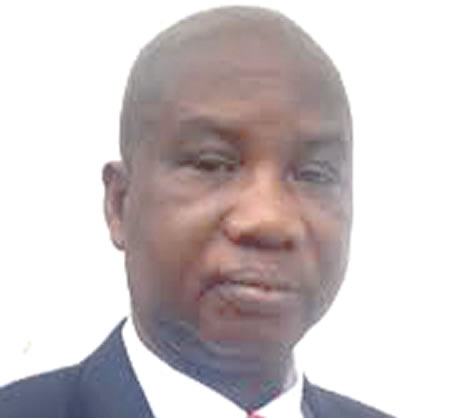Their activities using methods such as open burning have had deleterious effects on the environment and of course, the health of those involved.
Professor Onianwa told Ecoscope that the story of e-wastes does not have to be a thing that is injurious to man and his environment.
E-waste and health hazards
“The e-waste issue is a sweet and sour story in the sense that e-wastes are hazardous, and e-wastes are resources- very fantastic resources. If you manage e-waste badly, by firing up the e-waste in order to extract certain things, you pollute the environment, you generate very hazardous chemicals and you recover only very little of the precious materials. E-wastes contain very many precious materials. From base metals like iron, aluminium and copper, to very expensive precious metals like gold, palladium, ruthenium and so on. But we do not have the technology locally (in Nigeria) to refine these things,” Professor Onianwa stated. He explained that the circuit boards of smartphones and other electronic devices are where these precious metals are contained.
Urban mining to the rescue
Continuing he added that developed countries have realised that “it is more expensive to mine gold and some of these precious metals than to take a collection of e-waste materials and extract the precious metals from them. That is why they are talking about ‘urban mining’ as an alternative to deforestation, digging grounds” which he noted was more expensive and damages the environment. “For that reason, there is a lot of effort to take e-waste off the streets and set up good recycling facilities,” the Basel Centre Director added.
Hope for Nigeria and Africa
Giving a ray of hope for the country, Professor Oninawa told Ecoscope that “Nigeria is tending towards a very fantastic project with the initiative of some companies that manufacture electronic products. We call them original equipment manufacturers (OEM).” He mentioned Phillips, Dell, HP among others. He explained that there was an alliance b these companies to try and sole the e-waste problem in Africa, particularly in Nigeria. “What they are trying to do now in Nigeria is to establish what is called a Producer Responsibility Organisation.” He said this would be a scheme in which the producers, that is manufactures, and importers, particularly the big businessmen who import electronics will take responsibility for managing the products by taking them out of the environment at the end of their lifecycle via recycling.
About Extended Producer Responsibility (EPR) methodology
This according to him, will be called the Producer Responsibility Organisation scheme. “It is a well-known internationally recognised methodology of handling many kinds of waste. I understand that even the plastic industry is also doing that in Nigeria. It is part of what we call the Extended Producer Responsibility (EPR) methodology, in which the producer’s responsibility is extended beyond manufacture. It goes forward to what happensto the product throughout its lifecycle.” He said that under the arrangement, the producer still takes responsibility for the product at the end of its useful life. He said the modalities for this were still being worked out. However, this mechanism would mean that when you import a product, the manufacturer and main importers will have to pay some money to another organisation that is set up called the Producer Responsibility Organisation. That organisation will use the money obtained to support recyclers, environmental awareness programmes, the informal (recycling) sector to ensure that these products are effectively collected and recycled in an environmentally sound manner. There is a lot of activity going on to register the PRO for e-waste in Nigeria.”
He said all this was taking place with the support of government, NESREA which will be regulatory agency for the EPR scheme in the e-waste sector. “Many international organisations are very interested in this and are willing to assist Nigeria because if it works here, it can be extended to other African countries,” Professor Onianwa concluded.






